Working with schools
Learning activities include support for formal learning from earlier years to a variety of different curriculum levels. Engagement activities range from provision of resources for independent use to direct engagement sessions within GLAM’s inspiring spaces.
Researchers may be able to feed in to these activities and resources by working closely with GLAM learning teams to develop new and existing content. Schools engagement can give researchers the chance to communicate with people who already have an interest in the subject.
Costs can be variable so contact the relevant team to discuss (see below for contact details).
Study days and school visits: Study days are designed to enrich and support delivery of the school curriculum across various key stages. They offer unique access to GLAM’s collections with curators and Oxford University academics. Study days could include university-style lectures and workshops, live virtual classes, exhibition visits, guided tours when linked to special exhibitions, hands-on practical sessions facilitated by academic researchers or museum staff, and collections up close.
Resources for independent use: Resources which support curriculum linked learning and play for use both at home and at school can include videos, quizzes, activities and games, which may be available as online and/or printable resources.
Please be aware that GLAM venues have full and busy programmes and it may not be possible to pick up activities that have already been fully developed or to deal with urgent requests. Ideally, activities should be co-created with GLAM from project conception and researchers should get in contact early so that we can work together to develop your ideas. Please note that while researchers may contact GLAM departments directly they are also encouraged to contact departmental/Divisional PCER facilitators for interim support/guidance.

GLAM PCER Toolkit | Getting started |
| Opportunities by category | Opportunities by institution | Case studies |
(Please note that opportunities are subject to change)
- There can be excellent levels of engagement, in terms of creating dialogue, for both the audience and staff involved
- Engagements can potentially have a very long legacy as the content that is developed with researchers can sometimes be incorporated in to regular provision for schools
- The potential numbers of participants may be low compared to activities that engage the larger general public audiences of the GLAM institutions
- The potential participants are likely to have an interest in the topic already and hence this activity is less suitable for reaching new audiences
Costs will be variable depending on the activity so contact the relevant team for information. Costs may include:
- Staffing, e.g. Education Officer, PCER Officer, technical services support – although may be given ‘in-kind’. See section on How much will the PCER activity cost? in the GLAM PCER Toolkit for further details
- Collaborator costs, e.g. speaker/performer fees, travel costs
- Study materials, e.g. printing costs
- Evaluation costs
- Film & photography
- Safeguarding training (if required)
Please contact the relevant team to discuss costs as soon as possible.
Additional information and links
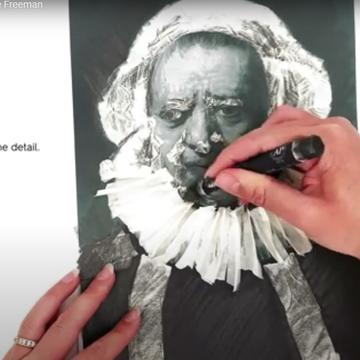
Ashmolean Museum
Example: Young Rembrandt Learning Resources
Further information/examples: Ashmolean Museum Learn webpages
Ashmolean PCER projects are currently being updated. Examples and opportunities are subject to change.
Contact: PER Coordinator, Zoe Bampton (zoe.bampton@ashmus.ox.ac.uk)
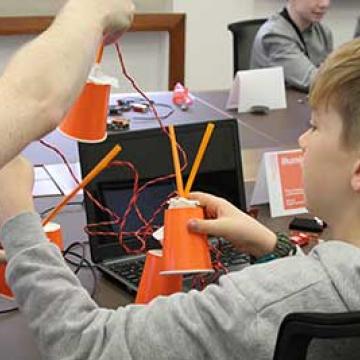
Bodleian Libraries
Examples: Chaucer's World study day | Tutankhamun: Excavating the Archive exhibition trails
Further information/examples: Bodleian Libraries Learning webpages
Contact: Education team (education@bodleian.ox.ac.uk)
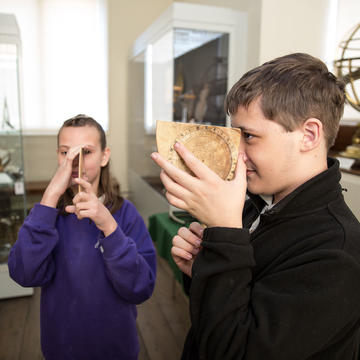
History of Science Museum
Example: Women in Astronomy (KS4 Study Day)
Further information/examples: History of Science Museum Learn webpages
Contact: Learning team (learning@hsm.ox.ac.uk)
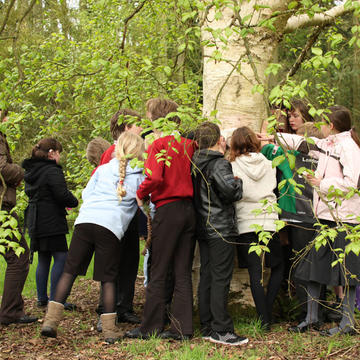
Oxford Botanic Garden and Arboretum
Example: Killer plants worksheet
Further information/examples: Oxford Botanic Garden and Arboretum Learn webpages
Contacts: Primary education team (primaryeducation@obg.ox.ac.uk) | Secondary education team (secondaryeducation@obg.ox.ac.uk)

Oxford University Museum of Natural History
Example: Molecular biology workshop led by early career researchers in a paid capacity. This is an ideal introduction to public and community engagement. Training is given, the workshop is well structured but researchers can weave in discussions and activities that highlight and explore their own specialisms.
Example: The Ageing Game, developed in partnership by the museum and the Department of Ecology's Professor Robert Salguerdo-Gomez as part of his research into ageing and senescence, also used in the Christmas lectures.
Further information/examples: Museum of Natural History Learn webpages
Contact: Education team (education@oum.ox.ac.uk)
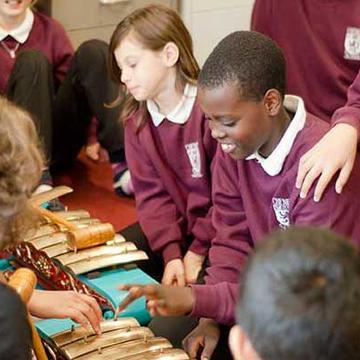
Pitt Rivers Museum
Example: Identities in Contemporary Art Workshop
Further information/examples: Pitt Rivers Museum Learn webpages
Contact: Education team (education@prm.ox.ac.uk)




